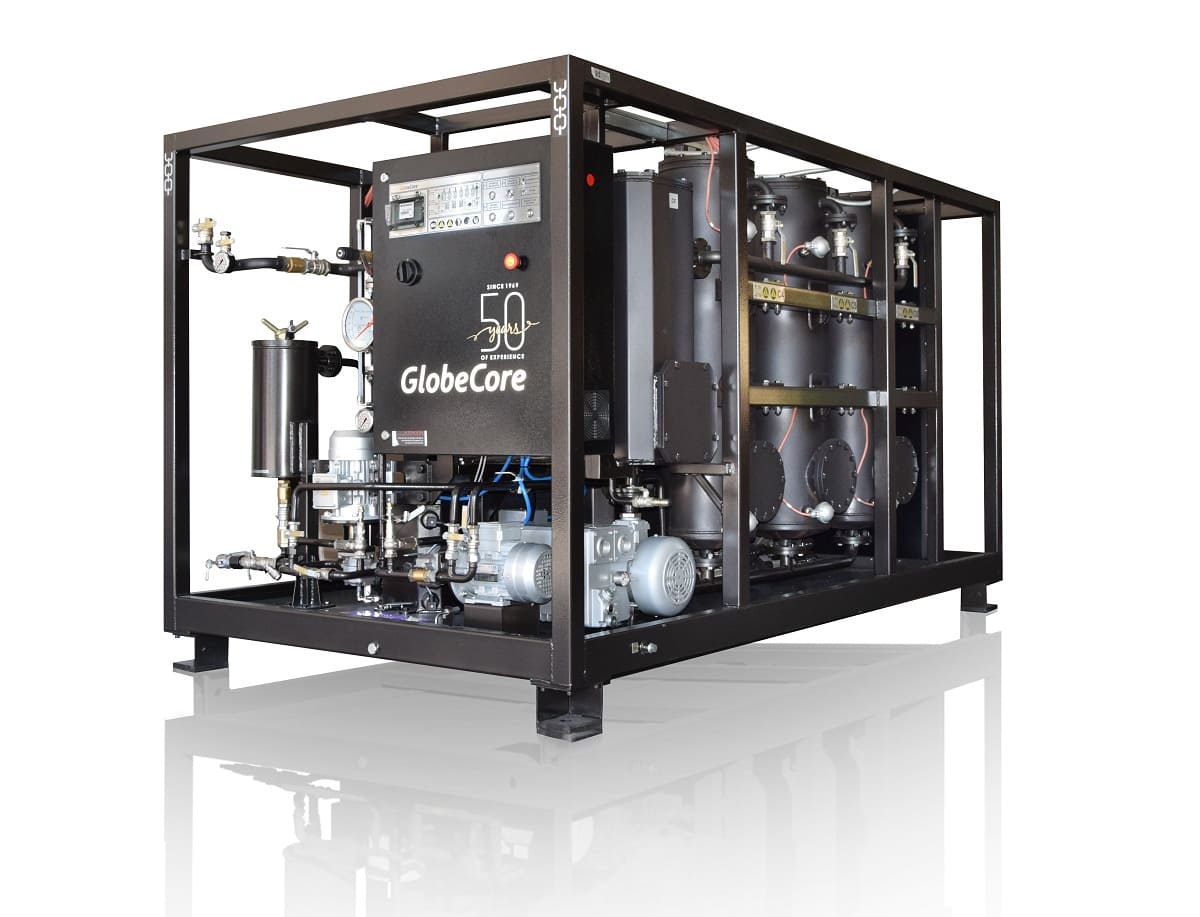Exactly How Regenerated Transformer Oil Sustains Sustainability Goals
Why Regenerated Transformer Oil Is Necessary for Reliable Power Equipments
The important role of regenerated transformer oil in ensuring the dependability of power systems can not be overstated. By recovering the oil's intrinsic chemical and physical residential properties, the regeneration procedure significantly boosts its dielectric strength and thermal efficiency.
Importance of Transformer Oil
Transformer oil plays a vital duty in the effective procedure of electrical transformers. This specific oil offers multiple functions, mostly as an insulator and coolant, ensuring the risk-free and reputable efficiency of transformer systems. Its dielectric properties stop electric discharges, thus protecting the integrity of transformer parts. By offering thermal conductivity, transformer oil dissipates warmth created during electric procedure, which is important for preserving optimum operating temperatures and prolonging the life expectancy of the devices.
Furthermore, transformer oil functions as an obstacle versus wetness and air, which can cause oxidation and destruction of transformer products. The existence of pollutants in the oil can dramatically impair its protecting homes, leading to operational inefficiencies and prospective devices failure. Regular surveillance and upkeep of transformer oil are consequently critical to ensuring the proceeded efficiency of transformers.
The top quality and structure of transformer oil are critical, as they directly affect the integrity and efficiency of the electrical systems in which they run. Comprehending the relevance of transformer oil is vital for energies and markets reliant on robust power infrastructure, emphasizing the need for effective monitoring and regrowth processes to maintain oil stability in time.
Benefits of Regrowth Process

Additionally, the regrowth process mitigates the destruction of oil, which can lead to boosted oxidation and acid development. This not only improves the integrity of the oil yet likewise lowers the risk of transformer failings as a result of insulation breakdown. The improved top quality of regenerated oil allows transformers to run at optimum levels, inevitably leading to improved energy effectiveness and reduced operational expenses.
Furthermore, the regrowth procedure contributes to keeping the total health of the power system. Transformers can run longer without the need for oil replacement, therefore decreasing downtime and upkeep efforts. In summary, the regrowth process offers considerable benefits by boosting the longevity and performance of transformer oil, making sure that power systems run accurately and successfully over time.
Environmental Impact and Sustainability
The regrowth procedure of transformer oil significantly eases ecological issues connected with oil disposal and waste management. Traditional disposal techniques for used transformer oil pose significant dangers, including soil contamination and water contamination. By regenerating oil, these threats are considerably decreased, as the procedure reuses existing resources as opposed to adding to throw away build-up.
Moreover, regenerated transformer oil can be wikipedia reference reused in various applications, which promotes a circular economy. This not just reduces the requirement for virgin oil extraction-- a procedure that can be environmentally damaging-- however likewise conserves all-natural resources. The regrowth process itself employs sophisticated filtering and filtration methods that remove hazardous impurities, making sure that the final item goes beyond or meets market requirements for performance and safety and security.

Enhancing Transformer Performance
Significant enhancements in transformer efficiency can be attained through using regenerated transformer oil. This oil, generated with sophisticated filtration processes, substantially enhances the electrical insulation buildings of transformers. By removing impurities and pollutants that typically jeopardize efficiency, regrowed oil makes certain superior dielectric strength, minimizing the threat of electric failings.
In addition, regenerated transformer oil shows enhanced thermal conductivity, which helps with efficient warm dissipation. This particular is crucial for maintaining optimal operating temperatures, thereby prolonging the life expectancy of transformers and lessening the chance of getting too hot - Regenerated Transformer Oil. Improved thermal administration additionally adds to the overall integrity of power systems
Furthermore, the chemical stability of restored oil avoids the formation of corrosive acids and sludge, which can adversely influence transformer parts. By maintaining a cleaner interior environment, this oil minimizes upkeep needs and extends solution periods.
Cost-Effectiveness and Effectiveness
In terms of cost-effectiveness and effectiveness, restored transformer oil provides a compelling choice to traditional oils. The regeneration procedure not just removes impurities yet additionally brings back the oil's initial residential or commercial properties, expanding its useful life expectancy. This longevity equates into minimized regularity of oil replacement, consequently lowering functional expenses gradually.
In addition, making use of regrowed oil can substantially lessen energy losses associated with ineffective insulating liquids. Its remarkable dielectric homes ensure ideal efficiency, enhancing the reliability of power systems. Consequently, businesses take advantage of reduced upkeep costs and lowered downtime, cultivating an extra effective operational atmosphere.

Conclusion
To conclude, the regeneration of transformer oil plays a critical role in making certain the dependability and performance of power systems. By restoring the vital click to read chemical and physical residential or commercial properties of the oil, this procedure boosts dielectric strength and thermal conductivity, eventually minimizing the danger of insulation breakdown. Moreover, the ecological advantages related to reusing sources add to sustainability efforts, while cost-effectiveness and improved performance underscore the need of using regenerated transformer oil in contemporary electrical click facilities.
Transformer oil plays an essential role in the efficient procedure of electrical transformers. Routine tracking and maintenance of transformer oil are for that reason vital to ensuring the proceeded performance of transformers.
The regeneration process of transformer oil substantially eases ecological concerns linked with oil disposal and waste administration. By extending the lifecycle of transformer oil, the energy and resources generally eaten in creating brand-new oil are dramatically reduced.Significant improvements in transformer efficiency can be attained with the use of regenerated transformer oil.